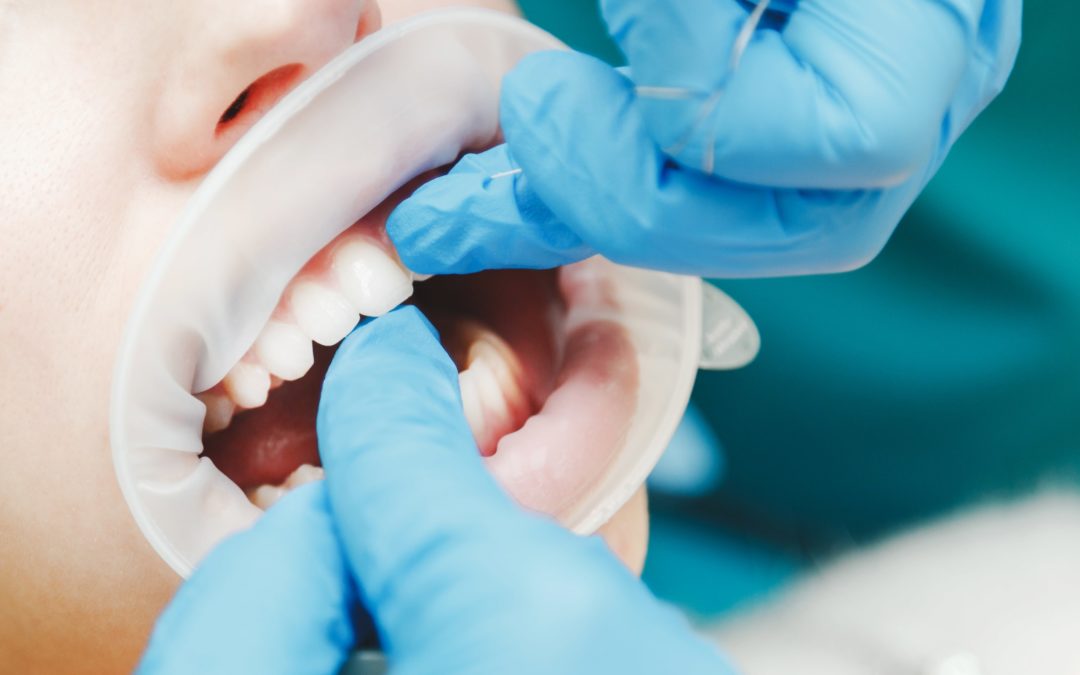The earliest stage of gum disease is called gingivitis in the dental community and associated symptoms are red, inflamed, and/or bleeding gums. Shockingly, three out of four Americans suffer from gum disease and the effects, yet many are afraid to seek treatment which can, in turn, lead to increased overall health issues. Symptoms of gum disease can be recognized at home, and your dentist can ensure that you are taking appropriate precautions to stop or prevent the further spread of gum disease.
Symptoms of Gum Disease and Periodontal Disease
Poor diet, tobacco use, and poor oral habits can contribute to the onset of gum disease. There are also medications which reduce saliva production which then lead to increased bacteria production such as decongestants, painkillers, diuretics, antidepressants, and antihistamines. When saliva production is decreased, your mouth is unable to neutralize acid and wash away food produced by bacteria, and this can contribute to gingivitis. Gum inflammation, or gingivitis, usually precedes periodontitis/gum disease, but not always. Inflammation is the body’s natural reaction to recovery in exercise, or inflammation can be the early signs that something is more severely wrong. More often than not, we ignore inflammation, or mask the symptoms with an over-the-counter painkiller. Symptoms of gum disease can include red, swollen, or tender gums, chronic bacterial infections, sores in your mouth, gums that bleed when teeth are flossed or when eating, persistent halitosis (bad breath), and loose or wobbly teeth. It is imperative for patients to schedule a visit to the dentist if these signs appear or are worsening.
Gum Disease and Its Effects on Overall Health
Dentists can perform specific examinations to determine if a patient does in fact have gum disease. Ensuring that your gums are healthy is crucial, and when left unchecked gum disease can progress and have adverse effects on your overall health.
Recent research suggests a link between periodontal disease and sever medical conditions. The bacteria that causes gum disease can travel throughout the body via the bloodstream and in health-compromised patients, this can cause lift threatening problems.
If you are pregnant, or expecting to be, advanced stages of periodontitis has been connected to premature birth and low birth weights. Additionally, there is a link between Type-2 diabetes and gum disease, as well as kidney disease, Alzheimer’s asthma, osteoporosis, and cancer. The prevalence of periodontitis with diabetes is that people with severe gum disease tend to have higher levels of HbA1C, a form of glucose-linked hemoglobin that is used to measure the ways in which diabetes is controlled. The American Diabetes Association, ADA, shares that the connections between gum disease and diabetes goes both ways, as periodontitis may affect blood glucose control, and those who have diabetes may be more susceptible to bacterial infection, leading to gum disease.
The list of connections between gum disease and other health issues grows as gum disease progresses beyond gingivitis. It has been considered that there are over 120 health conditions that are related to dental problems. Dentists are continually researching and updating the connection between gum disease, oral hygiene, and overall coexisting health links.
University General Dentists Care About Your Gums and Overall Health
If you or someone you love has complained about any of the symptoms above, it is crucial that an appointment is made to visit a dentist to stop gum disease from progressing further into periodontitis. At University General Dentists, we work with specialists who provide laser periodontal therapy as a no-cut, no-sew alternative to conventional gum surgery. The recovery time from this procedure is less, office visits are less, and you can even drive home, go back to work, or head straight to your favorite restaurant for lunch after the procedure. We care about your overall health, not just your gums and teeth. That’s why we take extra measures to ensure that your visit to the dentist is not painful or fearful, including offering in house hospital sedation to make your visit comfortable. Why not reach out to schedule a check-up and maintain the connection between good oral health and your overall health?

